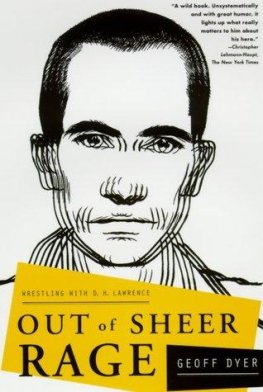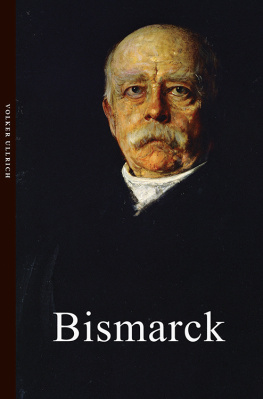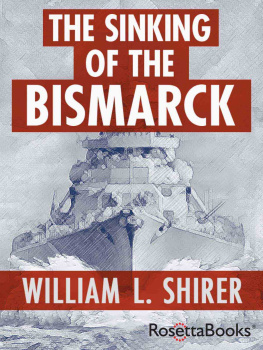THE UNION OF ITALY
..................
THE PERIOD WHICH ELAPSED BETWEEN the close of the Crimean war and the establishment of the German Empire at the beginning of 1871, may be said to contain events of more importance as regards the European system than even its reconstruction by the Congress of Vienna. These events are, besides the new Empire just mentioned, and a few minor occurrences, the establishment of the Kingdom of Italy, the absorption of the Popes temporal power, the realization of Prussian supremacy, the decline of Austria, and the Franco-German war. In the same period occurred two events of vast moment in the history of the world: the Indian revolt and the civil war in America, which threatened at one time to break up and divide the great Republic of the Western Hemisphere; but these have no direct bearing on our peculiar subject, the European concert. The affairs of Italy first claim our attention, from their priority in order of time.
The Austrian occupation of Lombardy and Venetia seemed still in the year 1858 to offer an insuperable bar to Italian unity and freedom. Whilst the possession of these provinces severed Italy, it also enabled the Austrians to introduce their forces into that country for the purpose of upholding its several governments; all of which, with the exception of Sardinia, were more or less under their influence. The sovereigns of Parma, Modena, and Tuscany, were connected with the Austrian Imperial family, and leaned on it for support; whilst the Austrian Cabinet had also a powerful voice in the Neapolitan and Papal councils, and may thus be said to have dominated nearly all Italy. Without the expulsion of the Austrians, the views of Italian patriots could not be realized, and without foreign help they could not be expelled. The attempt had been made in 1849, and ended in disastrous failure.
Other necessary conditions for the freedom and unity of Italy were, that the Italians themselves should desire them, and be agreed as to the means for their attainment. Hence a difficulty almost as great as the presence of the Austrians. For though dissatisfaction at the existing state of things was a very prevalent feeling, opinions varied as to the remedy to be applied. The more ardent patriots desired republican institutions, but of these some would have been content with a confederation of independent commonwealths, whilst others aimed at an undivided Italian Republic. This last party, the most stirring and influential, was led by Mazzini and his sect, or society, called La Giovine Italia, or Young Italy; which, though itself a secret society, had now pretty well superseded others of a like nature, as the Carbonari. The men who adhered to Mazzini were dazzled by ideas, which had the fault of being utterly impracticable. He was for reconstructing society from its foundations, something after the fashion of Rousseau; nay, he thought that art, science, philosophy, in short everything in the world required renovation. Nor were his views confined to Italy. They embraced all Europe, and in 1834 he had drawn up a scheme of La Giovine Europa, an apostolate of ideas, as he calls it, by which the whole continent was to be remodelled on the principles of liberty, equality, and fraternity; but he allows that he expected no practical result.
A few men of wiser and more statesmanlike views saw that the only hope for Italy lay in the suppression of such conspirators, who were not only abortive disturbers of the public peace at home, but also disposed European opinion against Italian freedom: for these politicians saw that the emancipation of Italy from a foreign yoke was simply impossible without help from abroad. This school, as was natural, had its origin in Piedmont, the only constitutional Italian State; and probably their plans for Italian unity were not unmixed with some desire for the aggrandizement of their native country. At the head of them must be placed Count Massimo dAzeglio, and a few of his friends, as Balbo, Gioberti, and others. DAzeglios leading idea was, that no revolutionary attempts could succeed but such as were conducted in open day. To the success of his plans the formation of a sound public opinion was necessary, and with this view he had undertaken in 1845 a journey through great part of Italy in order to ascertain the sentiments of the people; when he discovered that all persons of sense and respectability were disgusted with the absurdities of the followers of Mazzini, and desirous of a new path. His views were approved by King Charles Albert, who encouraged him to publish them. Such was the origin of his political writings. After the defeat and abdication of that sovereign in 1849, dAzeglio became the Prime Minister of his son and successor, Victor Emanuel II, a post which he held till 1852, when he was succeeded by Count Cavour.
Without this change Italian independence and unity would probably not have been achieved. With all his talent and good sense, dAzeglio lacked the energy, perhaps also we may say the unscrupulous boldness, without which great revolutions cannot be effected. Of a generous temper, and devoted to literature and art, he was somewhat inactive and unpractical. Cavour, on the contrary, was evidently a man of action, and from the time of his taking office, he may be said to have held the fate of Italy in his hands. A main part of his policy was to obtain for it the good opinion of Europe. Hence his commercial treaties with France, England, Belgium, and Switzerland; hence also the seemingly inexplicable part which he took in the Crimean war. It was, in fact, a well-considered blow at Austria. Sardinia appeared among the European Powers at the Congress of Paris in 1856, and her envoy sat side by side with the Austrian Minister, Count Buol; before whose face he denounced the dangerous state of Italy through foreign occupation.
Cavour, though enterprising, was cautious, and awaited his opportunity. He appears to have early contemplated the establishment of a northern Italian kingdom by means of French intervention, and he prepared for future events by strengthening Alessandria, Casale, and Valenza, and by creating a great naval arsenal at Spezia. With regard to home policy, he loudly denounced the revolutionists and republicans. A national opinion, fostered by the means to which we have adverted, was now beginning to prevail over the sects, and the National Society, organized by La Farina, served to recall many from Mazzinian affiliations. The last insurrectionary attempt of Mazzini, at Genoa, proved a miserable failure. With like views, Cavour conciliated Daniel Manin, the Venetian patriot. Manin repudiated as he did the plots of conspirators and the daggers of assassins, and pressed Mazzini to retire from a scene where he was only an obstacle to Italian progress.
Cavour thought that he might securely reckon on the help of Napoleon III, the insurgent in Romagna in 1831 for Italian independence, when a detestable act seemed to shatter his hopes. As the French Emperor and Empress were proceeding to the opera on the 14th of January, 1858, one Orsini, who after the Roman revolution had taken refuge in England, and hatched there his diabolical plot, discharged at the Imperial carriages a so-called infernal machine, consisting of a number of gun barrels, fired simultaneously by a train of powder. Fortunately neither the Emperor nor Empress was hit, but several of their suite, as well as bystanders, were killed or wounded. England was denounced at Paris as having hatched the conspiracy, and Count Walewski, the French Foreign Minister, addressed a remonstrance, couched in moderate terms, to the British Cabinet. It was of course an absurd suspicion that the English nation or government should abet assassination, but the French had some grounds for it. In the preceding year three Italians had gone from London to Paris, with the design of taking the Emperors life, but were arrested and convicted. Mazzini was proved to have inspired this plot, and a member of the British Cabinet, Mr. Stansfeld, was his professed admirer and correspondent. The threats of some French colonels occasioned in England the establishment of the volunteers, and the whole affair a change of ministry, Lord Palmerston giving place to Lord Derby. By moderation on both sides, however, the rupture of the French and English alliance was averted, and the visit of Queen Victoria to the French Emperor at Cherbourg, on the reopening of that port in August, 1858, seemed to disperse the clouds which had gathered on the political horizon.











